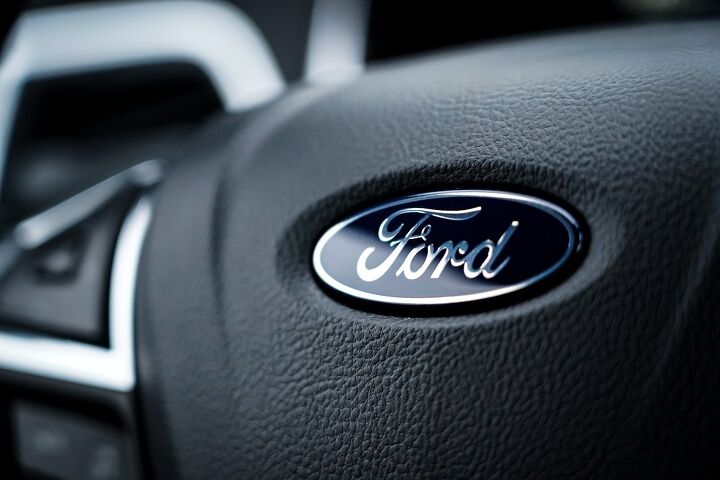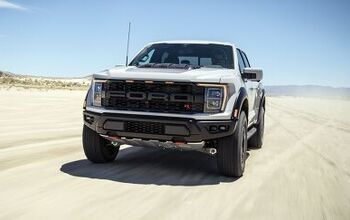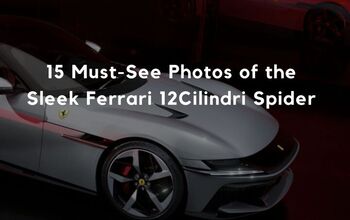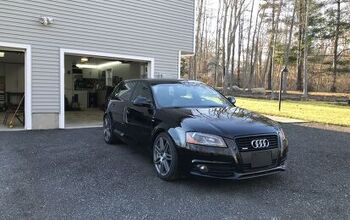Report: Ford CEO Says China Strategy Changing

Ford Motor Company is tweaking plans in China and seeking to turn around financial losses after five years of lackluster sales within the region. The new strategy will be focused on exporting to other countries, commercial product, and reinforcing the necessary supply chain for all-electric vehicles.
CEO Jim Farley has reportedly returned from Asia to finalize those plans, which were reiterated during a press call about Ford’s first-quarter earnings held earlier in the week. According to Automotive News, the executive stated that China would remain important to the company. But that the businesses would need to focus on sectors that would yield the highest return on investment. So far, direct sales haven’t been a part of that.
But it doesn’t appear to be for a lack of trying. Ford has introduced new models specifically designed to cater to Chinese customers. Still, Changan Ford (the automaker’s regional joint venture) only held 1 percent of all Chinese light-vehicle sales in 2022 vs the 4 percent it managed to snag in 2016.
The business lost $572 million in China last year. Sadly, it will be harder to determine how it’s doing moving forward because Ford doesn’t intend on breaking down earnings by geographic location anymore. Like many manufacturers, it has also streamlined its sales reporting to a point where the resulting data borders on useless.
Ah, transparency.
"We're not going to try to serve everyone," Farley said on Tuesday. "It will be a lower investment, leaner, much more focused business in China."
From Automotive News:
Farley cited the company's joint venture partnership with Jiangling Motors Group as an example of what it will do moving forward, with plans to use Chinese operations as "export hubs" for affordable EVs and commercial vehicles to markets such as South America, Australia and Mexico.
Last month, the company announced the next-generation Lincoln Nautilus for North America would be exported from China, a first for Lincoln. Executives have said the luxury brand is profitable in China.
Asia has historically proven to be a slippery fish for American automakers. Japan has long seemed impervious to U.S. products, despite having been so heavily influenced by American culture following the 1940s.
But things have been a little different in China. While the country has been incredibly strict on vehicle importation and often required foreign businesses to engage in partnerships with local firms, American brands do exist there. Some brands (e.g. Buick and Cadillac) have even done quite well for themselves. However, similar to Japan, it’s the German brands that seem to be getting the most love.
Ford has been trying to make China work for years. But robust sales within the region have not manifested, making its decision to revamp operations unsurprising.
That said, leadership continues to claim that the market (which is now the world’s largest) will remain incredibly important. There are just too many potential buyers and China is aggressively pushing toward electrification and basically owns the global market in terms of battery production.
"We believe that not only is it the biggest EV market in the world, but customers digitally are ahead of the rest of the world, and so it's a really important market for us," said Farley. "And what we really see in our presence there is battery tech, digital experiences for the customer and advanced product, both software and hardware integrated."
[Image: Nick Shoe/Shutterstock]
Become a TTAC insider. Get the latest news, features, TTAC takes, and everything else that gets to the truth about cars first by subscribing to our newsletter.

A staunch consumer advocate tracking industry trends and regulation. Before joining TTAC, Matt spent a decade working for marketing and research firms based in NYC. Clients included several of the world’s largest automakers, global tire brands, and aftermarket part suppliers. Dissatisfied with the corporate world and resentful of having to wear suits everyday, he pivoted to writing about cars. Since then, that man has become an ardent supporter of the right-to-repair movement, been interviewed on the auto industry by national radio broadcasts, driven more rental cars than anyone ever should, participated in amateur rallying events, and received the requisite minimum training as sanctioned by the SCCA. Handy with a wrench, Matt grew up surrounded by Detroit auto workers and managed to get a pizza delivery job before he was legally eligible. He later found himself driving box trucks through Manhattan, guaranteeing future sympathy for actual truckers. He continues to conduct research pertaining to the automotive sector as an independent contractor and has since moved back to his native Michigan, closer to where the cars are born. A contrarian, Matt claims to prefer understeer — stating that front and all-wheel drive vehicles cater best to his driving style.
More by Matt Posky
Latest Car Reviews
Read moreLatest Product Reviews
Read moreRecent Comments
- Jeffrey Apple music and Podcasts if not listening to NPR.
- Theflyersfan Amazon Music HD through Android Auto. It builds a bunch of playlists and I pick one and drive. Found a bunch of new music that way. I can't listen to terrestrial radio any longer. Ever since (mainly) ClearChannel/iHeartMedia gobbled up thousands of stations, it all sounds the same. And there's a Sirius/XM subscription that I pay $18/month for but barely use because actually being successful in canceling it is an accomplishment that deserves a medal.
- MRF 95 T-Bird Whenever I travel and I’m in my rental car I first peruse the FM radio to look for interesting programming. It used to be before the past few decades of media consolidation that if you traveled to an area the local radio stations had a distinct sound and flavor. Now it’s the homogenized stuff from the corporate behemoths. Classic rock, modern “bro dude” country, pop hits of today, oldies etc. Much of it tolerable but pedestrian. The college radio stations and NPR affiliates are comfortable standbys. But what struck me recently is how much more religious programming there was on the FM stations, stuff that used to be relegated to the AM band. You have the fire and brimstone preachers, obviously with a far right political bend. Others geared towards the Latin community. Then there is the happy talk “family radio” “Jesus loves you” as well as the ones featuring the insipid contemporary Christian music. Artists such as Michael W. Smith who is one of the most influential artists in the genre. I find myself yelling at the dashboard “Where’s the freakin Staple singers? The Edwin Hawkins singers? Gospel Aretha? Gospel Elvis? Early Sam Cooke? Jesus era Dylan?” When I’m in my own vehicle I stick with the local college radio station that plays a diverse mix of music from Americana to rock and folk. I’ll also listen to Sirius/XM: Deep tracks, Little Steven’s underground as well as Willie’s Roadhouse and Outlaw country.
- The Comedian I owned an assembled-in-Brazil ‘03 Golf GTI from new until ‘09 (traded in on a C30 R-Design).First few years were relatively trouble free, but the last few years are what drove me to buy a scan tool (back when they were expensive) and carry tools and spare parts at all times.Constant electrical problems (sensors & coil packs), ugly shedding “soft” plastic trim, glovebox door fell off, fuel filters oddly lasted only about a year at a time, one-then-the-other window detached from the lift mechanism and crashed inside the door, and the final reason I traded it was the transmission went south.20 years on? This thing should only be owned by someone with good shoes, lots of tools, a lift and a masochistic streak.
- Terry I like the bigger size and hefty weight of the CX90 and I almost never use even the backseat. The average family is less than 4 people.The vehicle crash safety couldn't be better. The only complaints are the clumsy clutch transmission and the turbocharger.

































Comments
Join the conversation
Reminds me of the 80's when the Japanese kicked the Big Three and the 90's when the Koreans gobbled up the inexpensive market. The response was to dump Mercury, Pontiac, Oldsmobile, Plymouth, Holden, & Saab due to diminished market share.
As part of Plan B, The Big Three raced to China to grab an exploding market with American cachet. Now, the wind has changed direction (greater domestic quality, EV transition), yet the Big Three are caught with their pants down for the second time!!
Stick with what you know: the Western Hemisphere and Europe; SUVs & pickups; develop EVs for the everyman like you did with ICE vehicles in the 1920's & 30's; and fight for market share. The C-Suite is full of MBAs who are afraid to get their fingers dirty; time to call in a street brawler who's not afraid of a fight.
Many Ford designs that are manufactured in China are designed in Australia. Ford just fired hundreds of engineers. That only leaves engineers to keep on designing the Rangers, Bronco, etc.